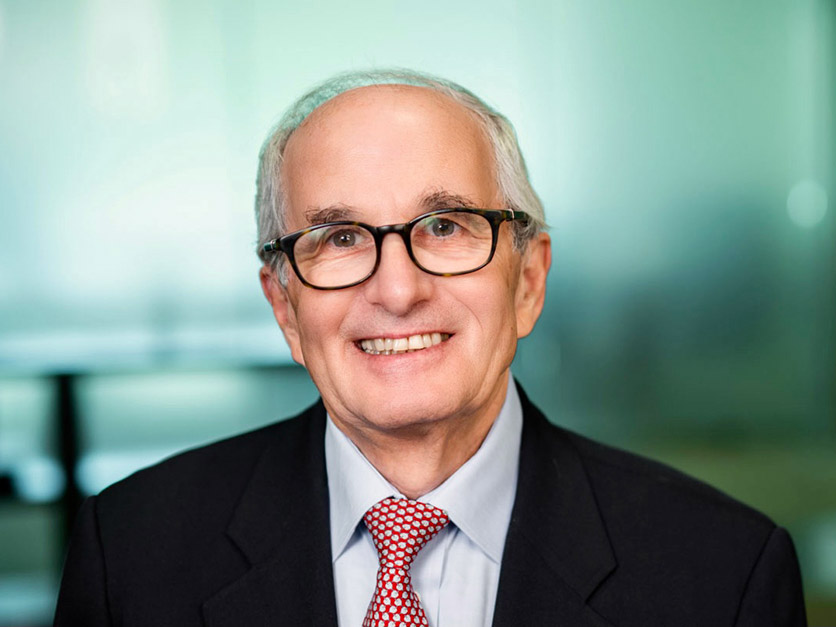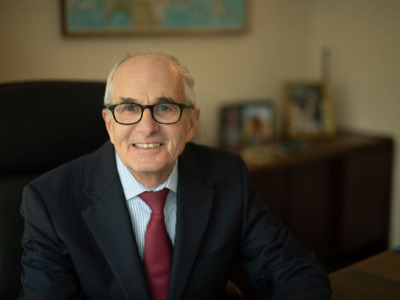The challenge is daunting. Agriculture must produce enough food to meet the needs of a growing world population while at the same time cope with climate change. The UN Food Systems Summit (FSS) has concluded, so it is fair to ask if it was successful? If you were expecting a few simple recommendations to eliminate global hunger, you might be disappointed. There is clearly no magic bullet. But the size, scope and diversity of the Summit was nothing short of extraordinary. It was a most inclusive dialogue made possible by using modern technology, under the dynamic leadership of Dr. Agnes Kalibata of Rwanda.
Over the course of 18 months, hundreds of thousands of people from around the world, in over 140 countries, and across all constituencies engaged with the Food Systems Summit to accelerate action to transform food systems to achieve the 2030 Agenda for Sustainable Development. The primary goal of the Summit, in my opinion, was to put a spotlight on the goal of eliminating hunger…to elevate the issue from the ministers of agricultures around the world to Presidents and Prime Ministers.
In his address to the UN General Assembly on September 21, President Biden said: “At a time when nearly one in three people globally do not have access to adequate food - the United States is committing to rallying our partners to address immediate malnutrition and to ensure that we can sustainably feed the world for decades to come. To that end, the United States is making a $10 billion commitment to end hunger and invest in food systems at home and abroad.”
Now, let’s step back for a moment. The United Nations has identified 17 Sustainable Development Goals (SDGs). Goal #2 is to eliminate hunger. Other goals address the environment and gender equality. Goal #2 must be viewed with an eye on the others 16 goals.
The UN Secretary General announced the FSS in 2019, right before the COVID pandemic, because the world community was not making adequate progress to eliminating hunger. COVID has dramatically increased the hunger challenge. While it may be difficult for us in the US to imagine this, more people in Africa will die from hunger than from COVID. It is with that background that the FSS took place.
Many of us have heard that some 800 million people are hungry. It is the result of conflicts around the world, but also climate change, and a lack of an adequate distribution system for seeds and inputs to smallholder farmers.
Other numbers also caught my attention:
- Three billion people do not have access to a healthy diet.
- Four and half billion people are involved in food production.
- Obesity impacts one to two billion people.
That may be hard to comprehend in the USA, a country where we are so productive that 1% can feed the rest of the country. And we do it at a lower cost than in any other country in the history of the world.
Secretary Vilsack and USAID Administrator Samantha Power represented the U.S. in a joint appearance to the FSS. During the Summit, Secretary Vilsack noted in remarks: “We must use the power of ingenuity to improve on food systems, so they provide safe, nutritious, affordable, and accessible food for all, while conserving natural resources, and combating the climate crisis.”
There were several themes of the Summit that need to be recognized:
- The role of science was front and center. Dr. Joachim Von Broun headed the science track and the FSS was dedicated to science. Dr. Akin Adesina, President of the African Development Bank, and others focused on the importance of increasing yields.
- The FSS placed a high priority of the role of youth. “Nothing about us without us” declared the young people.
- The future of agriculture must also be sustainable. From the Colorado River in our Southwest to the rainforests around the world, agriculture production must be reconciled with the environment. That will not be easy, but it is critical.
- While the Summit was truly global with speakers from every corner of the globe, there seemed to be a special focus on Africa. The hunger problem in Africa is acute but Africa also has the potential to help solve the challenge given the amount of land and potential to increase yields. Mr. Strive Masiyiwa, a leading African entrepreneur and Special Envoy for the African Union, noted that it was former UN Secretary General Kofi Annan who started the Alliance for a Green Revolution in Africa to grow Africa out of poverty. (The organization is now lead by Dr. Agnes Kalibata.)
- Resilience was a constant theme.
- The importance of school food nutrition was emphasized.
- The oceans and inland waters deserve more attention. Twenty percent of protein consumption comes from the waters of the world.
- Post-harvest loss compounds the challenge of achieving SDG #2.
H.E. Antonia Guterres, the Secretary General opened the Plenary Session by saying that “food is life; food is hope.” At the same time, he noted that agriculture production was responsible for one-third of all global emissions. Reconciling these goals is going to take constant vigilance over the next decade and a holistic approach, as noted by several of the Presidents to address the FSS. In short, the production of food in a sustainable way is critical to human health, education, the environment, economic development and, finally, national security.
It turns out that the FSS was just the start of a dialogue that must continue.
Marshall Matz is Chairman of OFW Law in Washington, D.C. He is on the Board of the World Food Program, USA. mmatz@ofwlaw.com
For more opinions and ag news, go to: www.agri-pulse.com.


